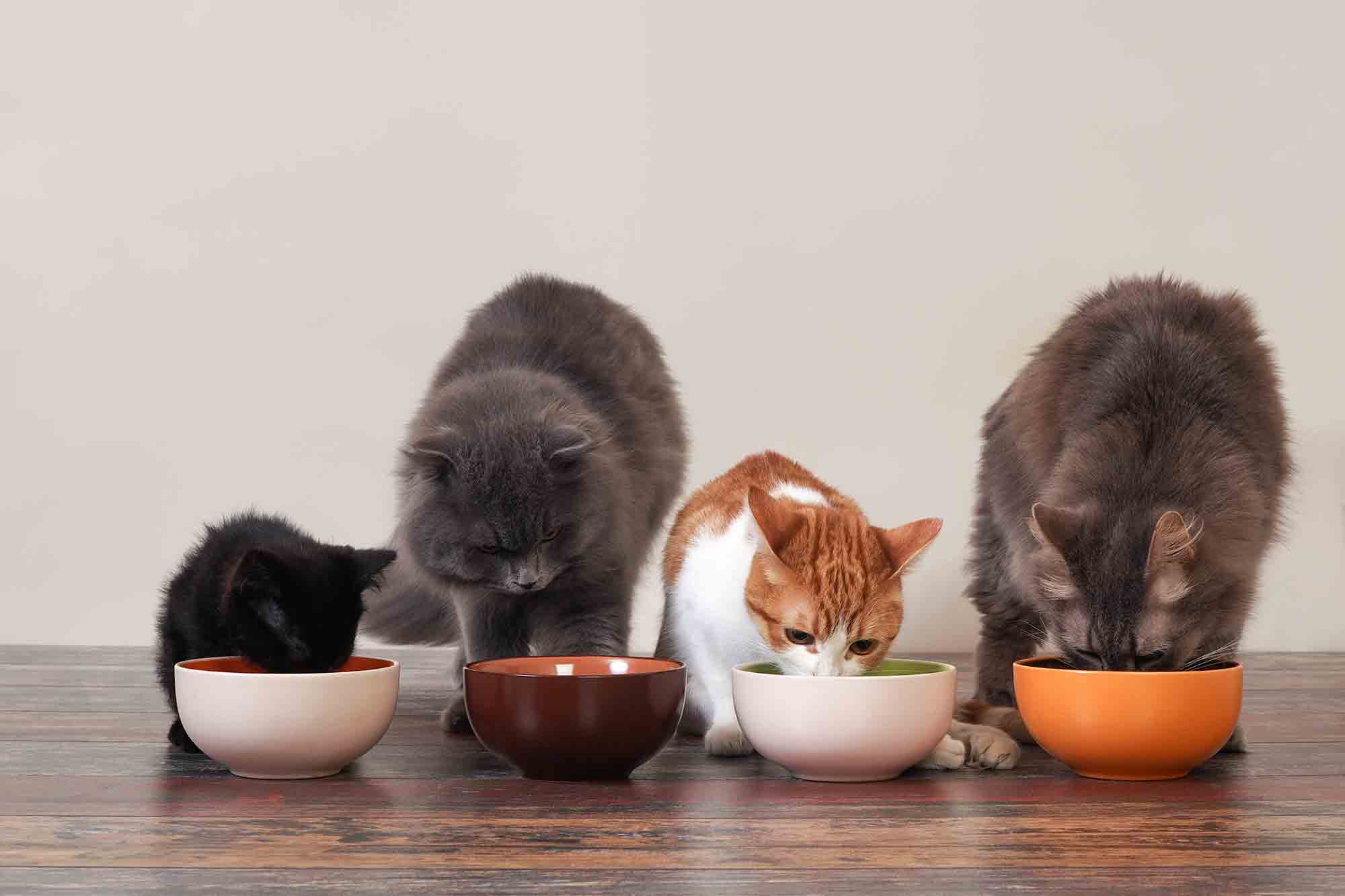Do I Need to Change Pet Food According to Age?
 A walk through the food aisle at your local pet supply store is likely to have your head swimming. There are diets for puppies, large breed seniors, small breed puppies, and more. There is cat food, senior cat food, food for cats with sensitive stomachs, and food for cats who live indoors. There are even pet foods geared towards certain breeds.
A walk through the food aisle at your local pet supply store is likely to have your head swimming. There are diets for puppies, large breed seniors, small breed puppies, and more. There is cat food, senior cat food, food for cats with sensitive stomachs, and food for cats who live indoors. There are even pet foods geared towards certain breeds.
Likely, you have found a diet that works well for your pet and have stuck with it. But do you need to change your pet food according to age? The answer isn’t always clear cut. Lucky for you (and your animals) our expert veterinarians at Rocklin Ranch Veterinary Hospital are happy to help you select the right food for your pet.
Importance of Pet Nutrition
This well-known phrase – you are what you eat – is actually quite accurate. A balanced diet is the foundation of good health in our pets.
A solid nutritional foundation is important in order to support:
- Ideal body weight
- Optimal function of the musculoskeletal system
- Healthy coat
- Good endocrine function
- Strong cardiovascular system
- Normal digestive function
- Balanced immune function
A pet with good nutritional care lives, on average, 2½ years longer than their counterparts fed a subpar diet. Your decisions matter tremendously in this area of pet care.
The Need to Change Pet Food According to Age
When choosing which diet to feed your pet, the choices are endless. There is good reason for the variety out there, though. Each pet has different nutritional needs. Just as a human newborn eats a diet that is different from a teenager’s, pets have different requirements as well.
You should choose your pet’s food by taking into account several factors, including caloric needs, health issues, and lifestyle. We often group pet foods into what are called life stages, making it logical that you may want to consider a change in pet food according to age.
Growth – An animal who is growing rapidly has very different needs than one who is maintaining an adult weight. Puppy and kitten foods often are more calorie-dense and protein-rich in order to accommodate a high metabolism. They typically have carefully calculated ratios of important minerals, such as calcium and phosphorus, to promote healthy growth. Needs for this type of food can vary, but most pets should be fed a puppy or kitten diet until around one year of age.
Adult maintenance – If you are feeding a puppy or kitten food, it is important to change pet food according to age as your pet enters maturity. In most cases, they no longer need the calories in a growth diet, and continuing to feed this may promote obesity. A good adult maintenance food provides a well-balanced nutritional profile for an adult pet.
Pregnant/nursing – An animal who is pregnant or nursing young needs lots of extra calories and nutrients to provide for her babies. A diet formulated for this will help the mother and little bundles of joy to thrive.
Senior – Most often diets labeled for senior pets have some changes from an adult maintenance diet. They are typically lower in calories to accommodate a more sedentary lifestyle. They are also usually a bit higher in fiber to promote healthy digestion and may contain additives like glucosamine for joint health (although, typically not in therapeutic concentrations).
Most pets need to change from a puppy or kitten food to an adult maintenance food as they enter adulthood. Thereafter, the waters become a bit more murky.
Not all pets need the changes provided by a senior diet. Some athletic animals may need a higher caloric concentration out of their diet. A good many more pets will need to transition to a pet food designed to address specific medical needs, such as food allergies, kidney disease, or gastrointestinal issues.
It is important to understand the right pet food according to age, and to be sure that your choice is the best one. Please let us know if you need help with this, as we love to talk nutrition with our pet parents!

